Science
At Blowers Green, we strive to nurture young scientists by encouraging curiosity and helping children develop a deeper understanding of how the world works. We aim to foster an inquisitive mindset that extends beyond their time at school, preparing them for future careers in the STEM industry. Our goal is to build their confidence in scientific experimentation, critical thinking, and understanding scientific processes, while exploring the past, present, and future implications of science.
Intent - What does the science curriculum intend to do?
From Reception to Year 6, our science curriculum follows the National Curriculum guidance closely in its sequence and content, whilst fostering a natural curiosity for science through the disciplines of biology, chemistry and physics. This enables all children to develop and acquire a range of progressive knowledge, skills and rich vocabulary. Through high-quality teaching resources, experiences, rich learning units and careful planning, we aim to enhance the children’s science capital; encouraging more young people to continue into science, technology, engineering and mathematics (STEM) jobs.
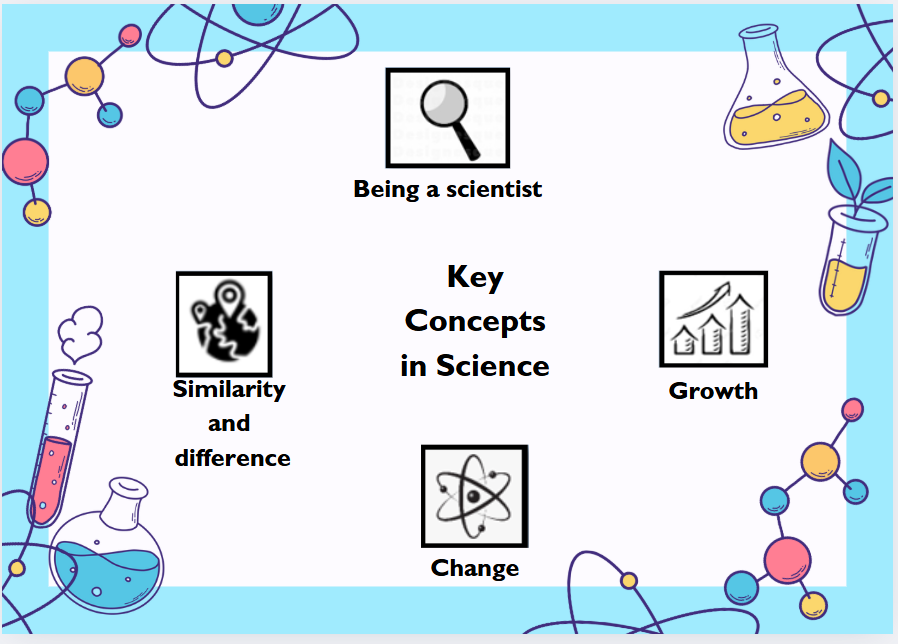
Implementation – How is the science curriculum implemented?
At Blowers Green Primary, science is taught across all year groups with a strong emphasis on fostering curiosity, exploration, and scientific thinking. In reception, science is integrated into the ‘Understanding the World’ area of the curriculum, where children engage in play-based learning through prompting, questioning and adult-led activities. This approach allows knowledge to be added slowly and deliberately, providing the foundational skills and understanding needed to support progression into year 1.
From year 1 to year 6, science is taught weekly through a progressive step by step approach, with a focus on deepening understanding of new content, skills, and vocabulary. The curriculum is carefully sequenced to interconnect ideas and build upon prior learning, constantly repeating and revisiting key concepts to interrupt the forgetting curve and develop long term retention. Pupils need knowledge to be skilful in scientific thinking, and by revisiting units (animals including humans, materials and light for example) we ensure that this knowledge stays warm and is retained over time.
Our science curriculum covers biology, chemistry, and physics, ensuring a broad and balanced understanding of the natural world. Pupils develop essential scientific skills such as asking questions, making predictions, conducting fair tests, and analysing data. Science is also linked to other subjects like mathematics, English, and geography where relevant, helping pupils see the broader connections between subjects. Real-life applications and career links are integrated into lessons and wider school life to show the practical relevance of science. For example, a gender stereotypes workshop which encouraged children to explore and question traditional roles, highlighted that all careers are open to anyone, regardless of gender. At Blowers Green we see the outside as an extension of our ‘science cupboard’. Outdoor investigations and educational visits to places such as the Dudley Archives, Think Tank, Dudley Zoo and The Birmingham Botanical Gardens further enrich science experiences, allowing pupils to engage with the world around them and develop a deeper understanding of scientific concepts in action.
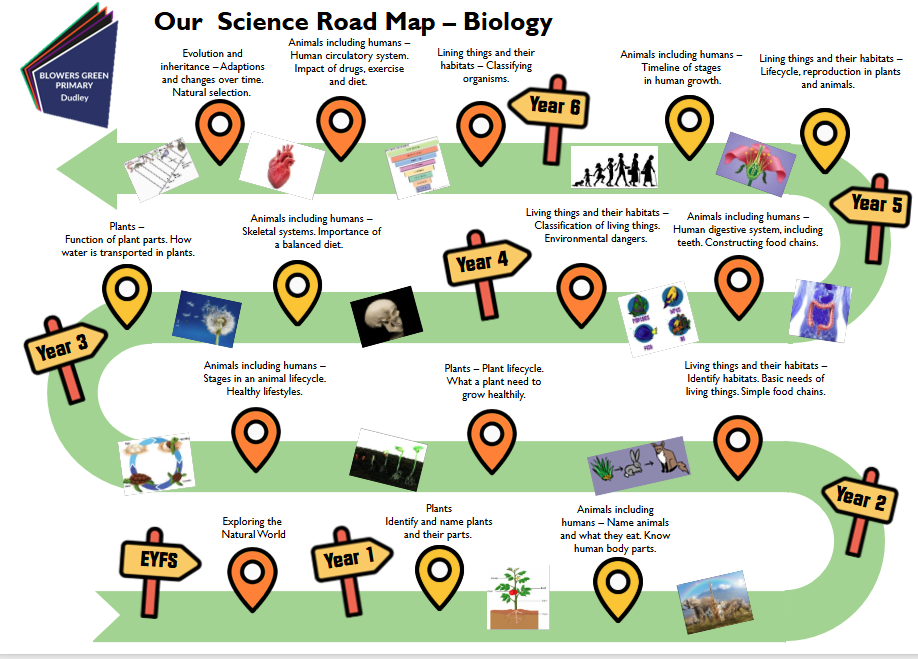
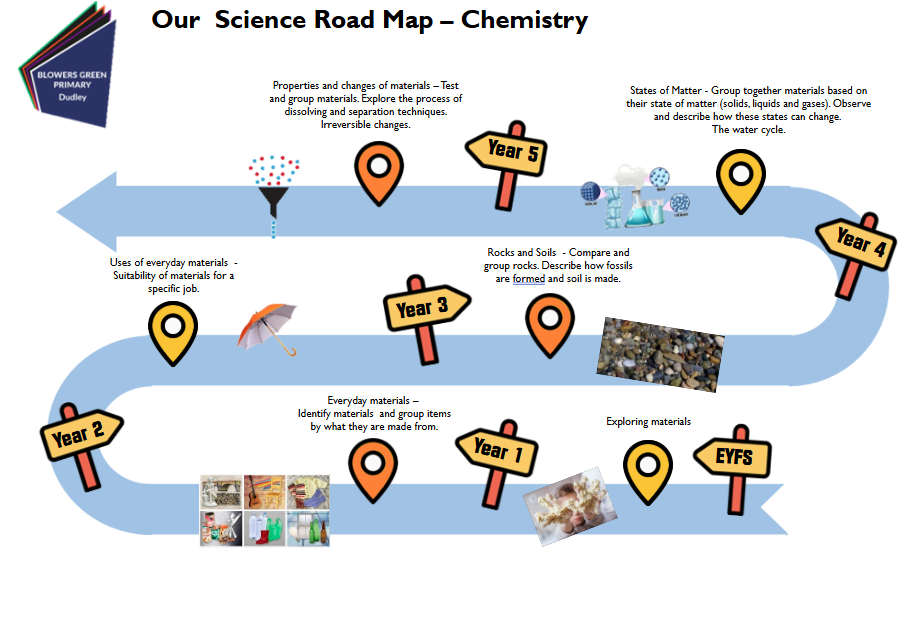
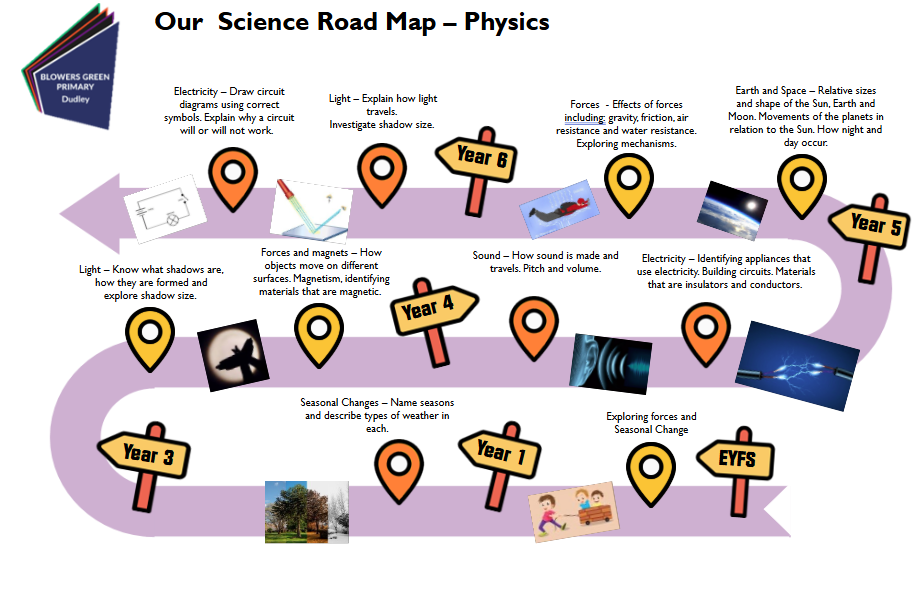
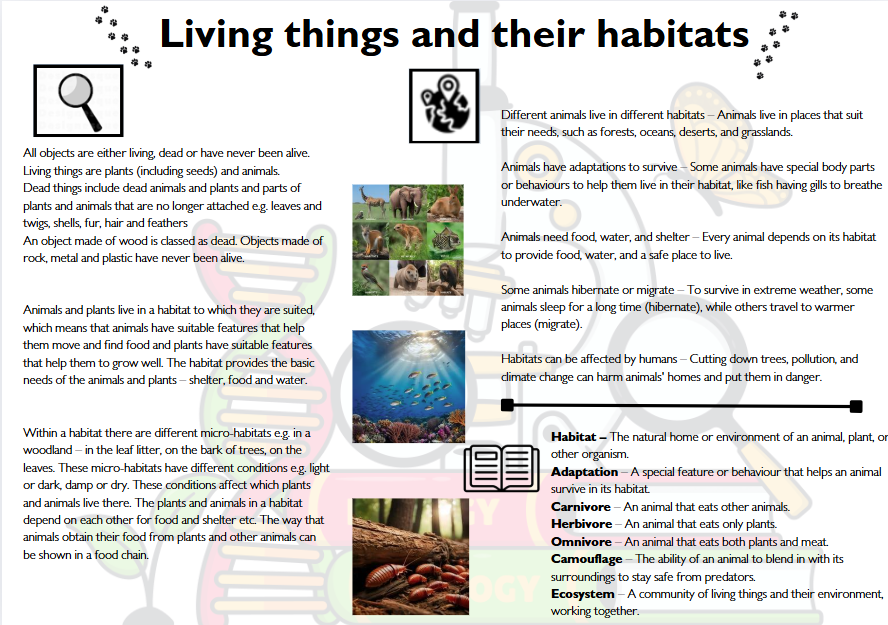
Impact – What progress will children make?
At Blowers Green, the impact of our science curriculum is evident in the development of pupils' deep understanding of the world, curiosity for discovery, and scientific thinking skills. Through enquiry-led learning, children make clear progress, with practice making permanent their knowledge and ability to apply concepts in real-world contexts. Through pupil engagement in lessons, practical investigations, questioning and written work, the impact of our science curriculum is assessed. Assessment becomes a conversational routine, allowing for continuous reflection and growth, ensuring pupils are equipped to think critically and confidently in science.
By the time pupils leave Blowers Green Primary, they will have:
-
A secure understanding of Key Scientific Concepts – Pupils will develop a solid foundation in biology, chemistry, and physics, allowing them to explain processes, changes, and relationships in the natural and physical world.
-
Strong scientific enquiry skills – Children will confidently ask questions, make predictions, plan fair tests, conduct experiments, record results, and draw conclusions using appropriate scientific methods.
-
Confidence in using scientific vocabulary – Pupils will be able to articulate their ideas clearly using precise scientific terminology, demonstrating their understanding of complex concepts.
-
The ability to think critically and solve problems – Through investigative work, children will develop analytical skills, logical reasoning, and the ability to evaluate evidence, preparing them for future scientific study.
-
An appreciation of science in everyday life – Pupils will understand the relevance of science in the real world, including its impact on technology, the environment, health, and future careers.
-
A sense of curiosity and a love for science – Children will leave Blowers Green with an inquisitive mindset, a passion for learning, and the confidence to explore scientific ideas independently.
-
Readiness for secondary science education – Our curriculum ensures that pupils’ transition to Key Stage 3 with the knowledge, skills, and enthusiasm to succeed in science at a higher level.
Aims of the Science Curriculum
The national curriculum for science aims to ensure that all pupils:
-
develop scientific knowledge and conceptual understanding through the specific disciplines of biology, chemistry and physics,
-
develop understanding of the nature, processes and methods of science through different types of science enquiries that help them to answer scientific questions about the world around them
-
are equipped with the scientific knowledge required to understand the uses and implications of science, today and for the future.